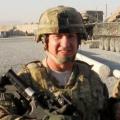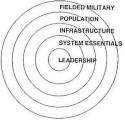This last item is possibly true however, I'll point out that NATO to an extent and us to a great degree have supported extended campaigns (Kosovo; NATO and us, for one example) or expensive long duration stays in unkind locations (from Korea to Kuwait for us). Not theocracies per se but unpleasant regimes and not terribly stable on occasion. In any event, what will transpire is IMO impossible to predict at this point. We'll see.
Hmm. Those start with a 'K' -- Afghanistan doesn't, maybe it'll be a change. Which way...









 "Its easy, boys. All we have to do is follow my simple yet ingenius plan..."
"Its easy, boys. All we have to do is follow my simple yet ingenius plan..."
 , which, BTW, I suspect will get worse as the taxes on tobacco are boosted even more.
, which, BTW, I suspect will get worse as the taxes on tobacco are boosted even more.


 . Still and all, you are quite right that the ISAF/US coalition needs to agree to Afghan self-determination.
. Still and all, you are quite right that the ISAF/US coalition needs to agree to Afghan self-determination.


Bookmarks